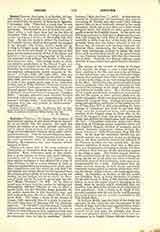

Coster, FRANCIS, theologian, b. at Mechlin, June 16, 1532 (1531); d. at Brussels, December 16, 1619. He was received into the Society of Jesus by St. Ignatius, November 7, 1552. While still a young man he was sent to Cologne to lecture on Sacred Scripture and astronomy. His reputation as a professor was established within a very short time, and on the 10th of December, 1564, the university of Cologne conferred on him the degree of Doctor of Philosophy and Theology. He was ever ready to defend the teaching of the Catholic Church, which at this period was engaged in the struggle with heresy, and by word and by writing he brought many back to the true fold. He was for two terms provincial of the province of Belgium, for one term provincial of that of the Rhine, and assisted at three general congregations of his order. The catalogue of his writings (De Backer, I, 218) mentions forty-two titles. They include works on ascetical subjects, meditations on the Blessed Virgin, and sermons on the Gospel for each Sunday of the year. Probably the most famous was his “Enchiridion controversiarum praecipuarum nostri temporis de Religione” (Cologne, 1585, 1587, 1589, 1593). This was afterwards revised and enlarged by its author in 1596, 1605, 1608; and was translated into various languages. To each of the attacks made upon it by Protestant writers, such as Philip Marbach, Franciscus Gommar, Lucas Osiander, Coster gave an able reply. His works directed against these opponents are entitled: “Liber de Ecclesia contra Franciscum Gommarum” (Cologne, 1604); “Apologia adversus Lucae Osiandri haeretici lutherani refutationum octo propositionum catholicarum” (Cologne, 1606); “Annotationes in N. T. et in praecipua loca, quae rapi possent in controversiam” (Antwerp, 1614).
G. E. KELLY

